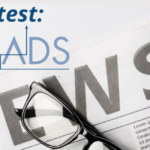
Our public awareness programs help to educate the public about Down syndrome. We make current information available to the public through our web site and through the brochures we distribute to hospitals and clinics. Our trained public speakers talk to schools, businesses, community groups, hospitals, and other organizations throughout the Chicago area. We also sponsor a variety of public awareness campaigns for Down Syndrome Awareness month in October, as well as organizing public awareness events.
Public Awareness Presentations
Our trained public speakers have given presentations at schools, businesses, community organizations, and medical facilities throughout the Chicago area. Their audiences have ranged from grade school students to special educators, parents, business managers, and medical professionals. Our speakers provide a detailed picture of what life is like for people with Down syndrome and their families, and they speak with the passion of their own experience. All of our public speakers are parents of children with Down syndrome
Our speakers also provide an important service to NADS by strengthening our relationship with local hospitals, which are our most important source of referrals for new families. Through our hospital in-service program, our speakers bring current information about Down syndrome to doctors, nurses, social workers, therapists, and other staff members. The positive message which our speakers bring and the insights they share help medical professionals to offer more sensitive care to families. Without the dedication of our speakers in maintaining these important relationships with the medical community, we would have a harder time identifying the families which need our help.
“NADS gives these budding health professionals the opportunity to think about these issues now, and consider how they will interact with their future patients under these circumstances. The volunteers are offering the students a different way to think about Down syndrome- as a difference, not a life-limiting disability that only causes grief and pain. This different way of thinking will, I hope, structure my students’ future interactions with patients and families who are living with or learning about Down syndrome.”
Loyola University Chicago


